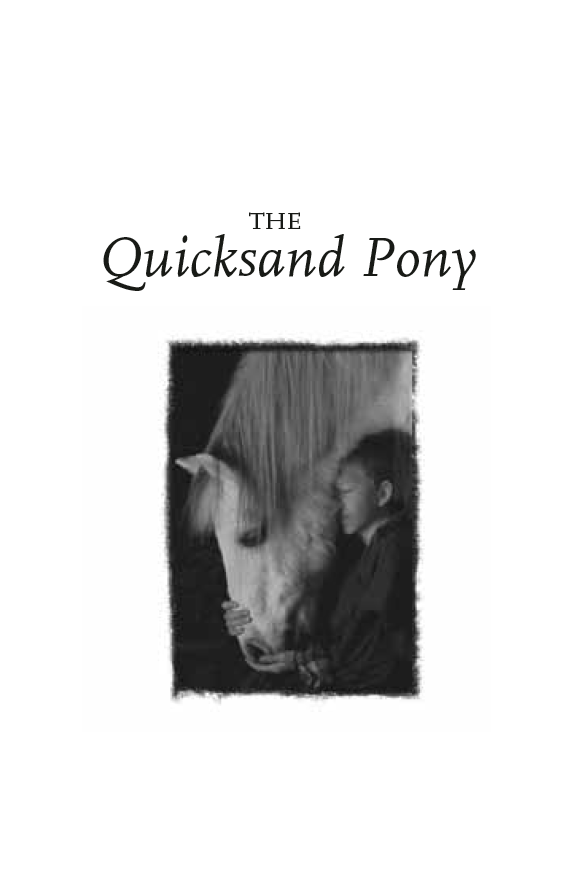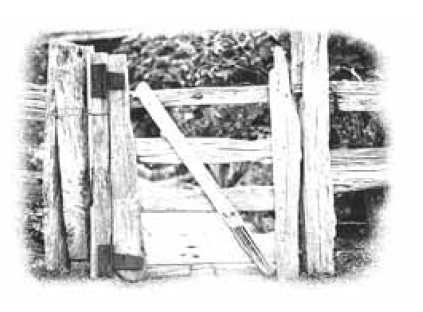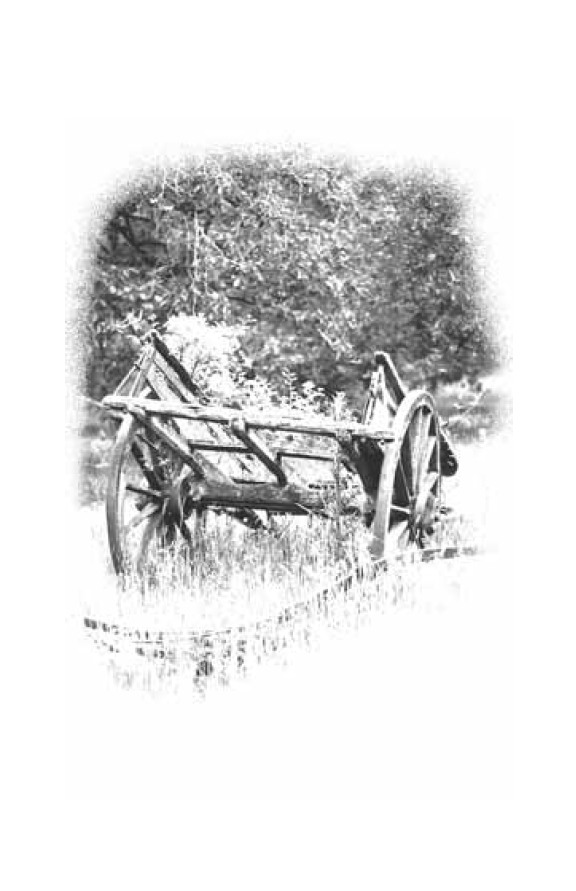The Quicksand Pony


âUnmistakably Australian . . . this simply written but cleverly constructed novel is about a childhood which is enviable but also real, grounded both in place and in the pattern of the generations.'
Robin Morrow,
THE WEEKEND AUSTRALIAN
âWhat Lester is able to give children is the sense that they can participate in a story which is somehow personal. Involvement comes quickly and is total. This is a book adults would also enjoy, if for nothing else than restoring a sense of what is best about childhood.'
CANBERRA TIMES
âThis is a poignant and moving book. The gentle humour and pathos which Alison Lester unfolds so wonderfully through her words will hold the reader captivated and captured from the beginning to end.'
GEELONG ADVERTISER
âA ripper of a book . . . Alison Lester's love of the Australian bush and its people is very apparent throughout this novel. The characters are fresh and believable . . . Highly recommended.'
SYDNEY'S CHILD

This paperback edition published in 2012
First published in 1997
Copyright
©
Text and Photographs, Alison Lester 1997
All rights reserved. No part of this book may be reproduced or transmitted in any form or by any means, electronic or mechanical, including photocopying, recording or by any information storage and retrieval system, without prior permission in writing from the publisher. The
Australian Copyright Act 1968
(the Act) allows a maximum of one chapter or ten per cent of this book, whichever is the greater, to be photocopied by any educational institution for its educational purposes provided that the educational institution (or body that administers it) has given a remuneration notice to Copyright Agency Limited (CAL) under the Act.
Allen & Unwin 83 Alexander Street Crows Nest NSW 2065 Australia Phone: (61 2) 8425 0100 Fax: (61 2) 9906 2218 Email: [email protected] Web:
www.allenandunwin.com
A Cataloguing-in-Publication entry is available from the National Library of Australia
www.trove.nla.gov.au
ISBN 978 1 74237 800 8
Cover and text design by Ruth Grüner
Cover photo by Getty Images / Sally Crossthwaite
This book was printed in November 2011 at McPherson's Printing Group,
76 Nelson St, Maryborough, Victoria 3465, Australia.
www.mcphersonsprinting.com.au
1 3 5 7 9 10 8 6 4 2
Ebook Producation by
Midland Typesetters
Australia
IN MEMORY OF DON


The moon was full the night they disappeared. Windswept paddocks lay clear and blue under high tatters of cloud. A car lurched, without lights, along the rutted road that ran from the town to the bay. It moved erratically, urgently, as though the driver didn't know how to drive. The wind whipped away the sound of the engine.
At the landing the car bumped to a stop and a slim figure emerged. She moved quickly, ferrying her bags and boxes into a dinghy moored at the ricketty bush jetty. Finally, satisfied that the oars and gear were right, she returned to the car and lifted out another bundle which she carried with great tenderness to the boat. She stowed it carefully in the bow, away from the wind and spray, then slipped into the boat like a cat and rowed silently out with the swirling tide.
The boat moved across the bay, through the shadows of scudding clouds. The tide was rushing out, rushing towards the entrance of the bay and beyond to the wild open sea.
She had to row across the current to reach the headland on the other side. She settled into a steady rhythm of rowing. If she kept the lights of the town lined up with the top of Price's Hill, she'd be on the right line.
The waves slapped against the side of the boat, uneven and choppy. It became more difficult to row. Her right oar missed the water altogether, as the dinghy pitched, and sent her sprawling backwards. She was drenched with spray, and there were hours of rowing to go. Oh for a bit of flat water.
It was a desperate struggle. If she rested for a moment the tide snatched the boat and dragged it towards the entrance. It was hard to tell how long she'd been rowing. She twisted on the wooden seat to look at the headland. She wasn't even halfway, but she was already tired and her hands were blistered from the rough wooden oars.
I'm never going to make it, she thought. It's too hard with the wind and the tide against me. Everything was always against her. She rested the oars on her knees and dropped her head in despair, then looked up as she felt the boat shift against the tide.

The east wind, the easterly they always cursed for the bad weather it brought, had come to her help. It swung around from the south-west, gusting and ruffling the water, and pushed the dinghy towards the mountains.
It was going to be all right. Her hands weren't so sore. Her chest didn't feel as if it was about to burst any more. She could do it.
She lifted the edge of the tarpaulin in the bow and listened intently. Not a sound. She smiled and began to row again.
The lights of the town became smaller and smaller. Across the silver water on her left (her port side, she thought) the farms that lay between the town and the headland were in darkness. Everyone would have been in bed long ago. Some of the dairy farmers would probably be getting up soon to milk their cows. The boat inched across the bay, its wake fanning out behind. She was mesmerised by the moving water. Images flicked through her mind. She thought of everything. She thought of nothing. She kept on rowing.
One of the oars banged against the side of the boat and she grabbed it with a start. Had she been asleep, or just dreaming? She looked over her shoulder. There was the beach, Whiting Beach. She was almost there.
The girl gave one last pull on the oars, to ground the boat in the shallows, and then lay back against the seat, breathing in ragged gasps.
Her baby started to cry. She fished him out of his blanket, held him to her breast and fed him. As he nursed she listened to the waves lapping on the sheltered shore and knew she had come home. Far across the moonlit bay the lights of the town were no more than a sparkling chain.
She was never going back.
It took her all night to clear their gear off the beach and get rid of the boat without leaving a trace. Her brother and dad were both trackers, and they would be desperate to find her. They'd be worried sick. Still, she had to do this. Had to get away from the town and come out here to grieve, to rest. Later on she'd let them know she was okay.
She dragged the boat through the shallows to where a low granite slab ran down to the sea. They couldn't track her on rock. She unloaded her boxes and bags. Then she left the baby sleeping in his blanket, wedged between her jumper and boots, and rowed the dinghy along the shore to the point. When she felt the current begin to tug, she slipped overboard, gave the boat a shove into the rip, and waded back around the bay. Her dress felt wet and heavy against her legs. Without stopping she gathered up the dripping fabric and wrung it out, then tucked the skirt under her waistband, clear of the water. The wind brushed over her wet skin, but she didn't feel cold. There was a gentleness and warmth on this beach that made her heart feel lighter already.
Carefully, so carefully, not leaving a footprint, a snagged thread, a broken twig, she carried her baby and the first load up the rock, then waded into the creek and followed it to the hidden valley she remembered from so long ago. It was her secret place, the place she'd discovered to hide in when her mother had died.

The farmhouse nestled against a low ridge of banksias, with a glassed-in porch that faced north to catch the winter sun. The paint on the window frames and roof had faded, and in the evening light looked pink against the white-washed weatherboards. A silvered paling fence ran crookedly around the garden, giving the flowers and vegetables shelter from the salt winds that blasted in from the strait. Ragged cypresses leaned over the shed near the house, and from her bed Biddy could hear their branches scraping against the roof.
The sun had just gone down and night was slowly overtaking the colours of the landscape. To the north- east a few lights marked farmhouses scattered along the coastal plain, and beyond that, way off, were the lights of the town. High purple hills cupped the bay, then petered out behind the farm.
The other way there were no lights, just miles of bush rolling around the bay, with the headland rising from it like an island.
Biddy thought she lived in the perfect spot, with the town on one side, the headland on the other, and the bay in front. Sometimes she rode up to the gravel ridge behind the stockyards and planned how she would defend her kingdom if she were a princess.
Their farm was at the end of the road, the furthest away from town. Biddy's grandfather had cleared the land and now her parents farmed it, grazing cattle and sheep. They had a small breeding herd of Hereford cows, but their main business was fattening cattle. Every autumn they bought young steers, when the prices were low, and put them to winter on the headland, a run of wild country the family had leased since the 1920s. The sweet native grasses that grew in the gullies made the cattle fat and sleek. Now, in the spring, was the time to sell them.

It took two days to muster and drive the cattle home along the beach, and Biddy had never been allowed to go. She always had to stay home with Grandpa. She really wanted to go this year.
Biddy listened, straining her ears for a distant sound, but there were too many other noises. The house creaked and shifted in the wind. Over at the big shed a loose sheet of iron banged and rattled. In the next room Grandpa's radio crackled out the weather report, and Tigger, stretched on her bed, was purring like an engine.
She knelt beside the window and pressed her face hard up against the glass. There was just the black swirling night. Nothing. Hang on, yes, there was a flash of light over on Soldier's Hill. Yes. It was . . . it was a cattle truck all right. They were easy to pick, with lights all along the trailer.

âDad! Dad! Marty Reed is here with the new cows, our new breeding cows! I saw him coming down the hill!'
âGood on you, mate. I'll go and help him unload. Those old girls have been on the road all day, so they'll be pretty thirsty and tired.'
âCan I come, Dad? Can I? Please? Go on, I won'tâ'
âAll right, Bid, all right. But put a jumper on over your pyjamas. It's pretty cold.'
The truck was already backed up to the loading race when they reached the yards, and the driver waved from the gate.
âHey, it's me girlfriend! How are ya, toots?'
Biddy had a huge crush on Marty Reed, even though he was twenty-four, and more than twice her age. He was tall and skinny, like a reed, and wore his pants so low on his hips that his shirt went forever before it tucked in. She gave him a hasty wave and climbed through the fence to see her pony. Bella was so white she seemed to glow against the dark yards. She nuzzled Biddy's neck as the girl buried her face in the silver mane.
âYou might as well throw a bridle on her, Bid,' called her father. âYou can drive the cows over the road for me.'
Bella still had some of her winter coat. She felt soft and furry through Biddy's flannelette pyjamas, and easy to grip on to. Biddy grabbed a handful of mane anyway. It would be a bummer to fall off in front of Marty Reed.
She rode away from the glow of the headlights, to guide the mob across the road and into their paddock. She felt like a bushranger . . . Maybe she was a cattle duffer sneaking this mob down to the headland, to hide out in the bush and wait for them to have their calves. They'd be so sweet, with their fluffy tails. She'd have toâ
âLook out!' Suddenly a black shadow leapt out, barking, as the cows neared the gateway. They wheeled, bellowing, and tore away down the road. Bella raced after them before Biddy had time to think. She could hear her father cursing Nugget. âYou useless mongrel of a dog! If they get up to the main road . . . ! By God I'll give you a . . . '
Bella galloped along the gravel track. Biddy could hear the cows crashing through the scrub on the roadside, but she couldn't see them. It was so dark she could barely see the trees against the sky. âWhoa!' she called. âWhoa, old cows!'
Over the first hill the bush thinned, and as Bella raced to head off the cows their white faces showed dimly in the night. Gradually they began to slow down, responding to Biddy's calming voice. âCome on, girls, let's go home. Come on . . . ho . . . get up . . . that's the way.' Finally they turned around and moved back through the scrub with Biddy and Bella following them. Biddy's pyjamas were soaked with the pony's sweat, and she could hear the cows panting and snorting over the wind. The lights of the ute came around the bend and stopped.
âAre you there, Bid?'
âYes, Dad, over here. We're coming home. I think I've got them all.'
The men counted the cattle into the paddock as they walked through the headlights. âYep, all twenty-six of them. You've done well, mate,' said Biddy's dad.
âYeah,' said Marty Reed. âWhat a cowgirl.'
Biddy took off Bella's bridle and smiled as the pony rubbed gently against her back. It felt good to be a cowgirl.
âWe're going to have to let her come with us this year, Lorna. She was pretty handy last night. She did as good a job as anyone, getting those cattle back.'
Biddy's ears pricked up as she sat on the back porch cleaning her school shoes. She didn't have any brothers or sisters, so she shared most of her parents' conversations, but she was also a skilled eavesdropper. She breathed quietly so as not to miss a word.
âI don't know, Dave.' Her mother's voice was doubtful. âIt's a tiring trip. And it's flat out. You know how hard we have to work in some of those rugged places. I won't have time to be looking after her.'
âYou won't have to, I'll guarantee.'
Biddy grinned to herself. Good on you, Dad.
âShe's as useful as any of the men I could take. Anyway, I was her age when I started going down for the musters.'
âWell, I thinkâ'
The crackle of the radio drowned out the conversation. Grandpa was listening to the morning news.